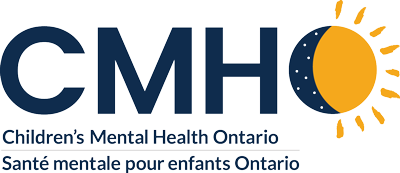Bell Let’s Talk 2020: Children’s Mental Health Ontario Sounds the Alarm
Bell Let’s Talk 2020: Children’s Mental Health Ontario Sounds the Alarm.
Today, for Bell Let’s Talk, Children’s Mental Health Ontario is sounding the alarm about the impact the pandemic is having on the mental health of children, youth, and families.
We don’t want to keep talking; we need to see change.
The mental health crisis our children, youth, and families are facing in Ontario is dire. Investments and additional support in child and youth mental health services are critical right now if we are going to be able to respond to the unparalleled needs that we are seeing since the start of the pandemic.
There’s no time to waste – our kids are in crisis.
Even before the pandemic, we had staffing shortages and long wait times for some of our child and youth mental health services. Before the pandemic started, 28,000 children and youth across Ontario were waiting as long as 2.5 years for care. The impact of those long wait times for mental health care is devastating for families.
Through the pandemic, the situation has worsened. Our kids have been hit especially hard. For example, school routines have been regularly disrupted, kids are facing new pressures to learn online, many of their regular activities have been lost, and their social networks have been forced to change. Children of all ages have been grappling with anxiety and depression, grief, and loss. The impact has been enormous.
Across our child and youth mental health care centres, we are seeing cases of more severe mental illness in children, including dramatic increases in the number of children coming to hospitals with eating disorders. Some of our walk-in clinics are seeing double the volumes of last year. There has been a disproportionate impact on low-income and racialized families who are experiencing even greater impacts on their mental health. Black families in particular but also Indigenous and racialized families are facing twin pandemics of structural racism and COVID-19, all of which takes an enormous mental toll.
Thousands of kids are struggling – and some are suicidal.
Thirty day guarantee for care.
CMHO is calling on the provincial government to invest in child and youth mental health. We must make it possible for children, youth, and families can get the help they need, when and where they need it – within 30 days.
These 30 days matter because when kids are not treated in a timely manner, their symptoms worsen, jeopardizing their futures. What may have begun as a mild symptom can rapidly evolve into an emergency. There are critical windows during a child’s development where treatment must occur and if missed, the opportunity for early intervention is lost. Without timely care, mental health challenges can follow children into adulthood.
We are advocating for a 30 day guarantee to ensure children and youth and families can get the help they need, when and where they need it.
Our kids can’t wait.
Find help at a CMHO child and youth mental health centre
Find resources for parents and caregivers in our Family Care Centre
Bell Let’s Talk
CMHO acknowledges and thanks Bell for the support they have provided to many of our child and youth mental health centres. Last year, seven member agencies leveraged funding from Bell Let’s Talk to build further capacity in the mental health services they provide to young people and their families. The programs and services developed spanned the spectrum of mental health and wellness and are exemplary in their approach to providing services that are responsive to the needs of children and youth in their communities. Below is a list of the programs in our network that have been supported by Bell Let’s Talk.
Algoma Family Services
Algoma Family Services in partnership with the City of Sault Ste. Marie used this funding to develop four youth hubs located in high-risk areas. These hubs follow a drop-in model and have allowed the organization to respond to 200 youth in the community that were previously waiting for services.
Children’s Mental Health of Leeds and Grenville
In partnership with the Rural Fetal Alcohol Spectrum Disorder Support Network, Children’s Mental Health of Leeds and Grenville have utilized funding to help support children and their families who are navigating a dual diagnosis of mental illness and fetal alcohol syndrome (FASD). Support services have included peer support groups and art, music and equine therapies.
Compass
Compass implemented this funding to expand their highly utilized and successful parent psychoeducational training groups that build a trauma-informed lens in caregivers of children who have experienced trauma. These groups have worked to aid parents and in the development of support skills as well as breaking down access barriers to necessary care.
FIREFLY
FIREFLY utilized funding to facilitate virtual counselling, which has helped reduce wait times and expand services in the region. Not only has access to virtual counselling been imperative during COVID, it has also helped reached young people in the region who were more comfortable using their smartphones to talk about mental health and wellness.
Massey Centre
In line with their ongoing services, this additional funding assisted the Massey Centre in building staff capacity to intervene and treat young teen mothers with mental health concerns such as post-traumatic stress disorder, anxiety, and depression, as well as more complex challenges such as borderline personality disorder.
North Eastern Ontario Family and Children’s Services (NEOFACS)
NEOFACS used their 2020 funding to train 29 front line child and youth mental health staff to deliver Theraplay®, a child and family therapy supporting healthy attachment between caregivers and their children. This service is offered in addition to their other client-responsive programs and services including intervention, public education, prevention and support services.
Ways Mental Health Support
Ways Mental Health Support leveraged funding to contribute to the creation of an intensive community-based, transitional-age program for youth who lack adequate supports and are transitioning to independence from unstable housing, youth residential services or foster care.
It goes without saying that 2020 was a difficult year and we still have some challenges to face on the road ahead. However, there is a light at the end of the tunnel and everyday, it gets a little bit brighter. Most importantly, you don’t have navigate what comes next, alone. If you are noticing behaviours in your child that might be different or concerning – reach out – we are here to help.


0 Comments